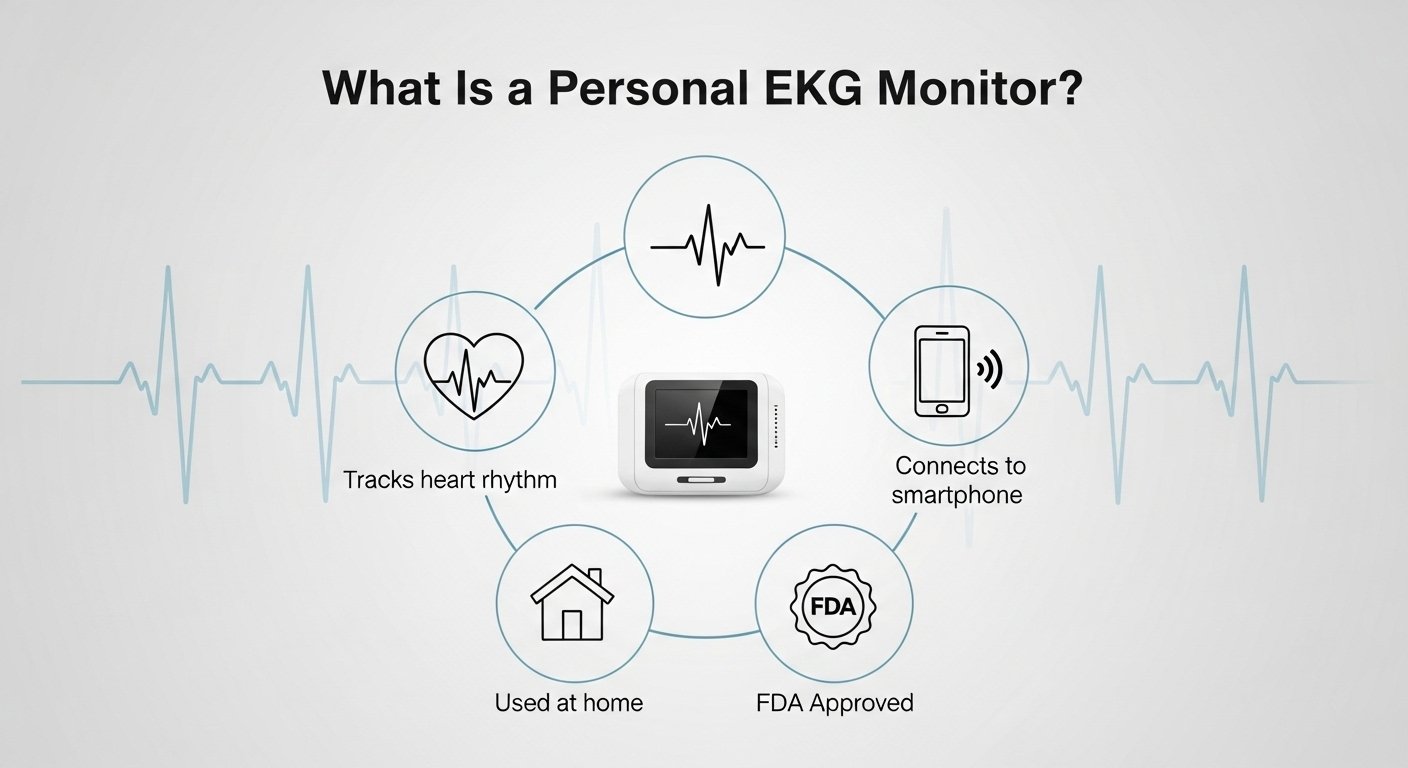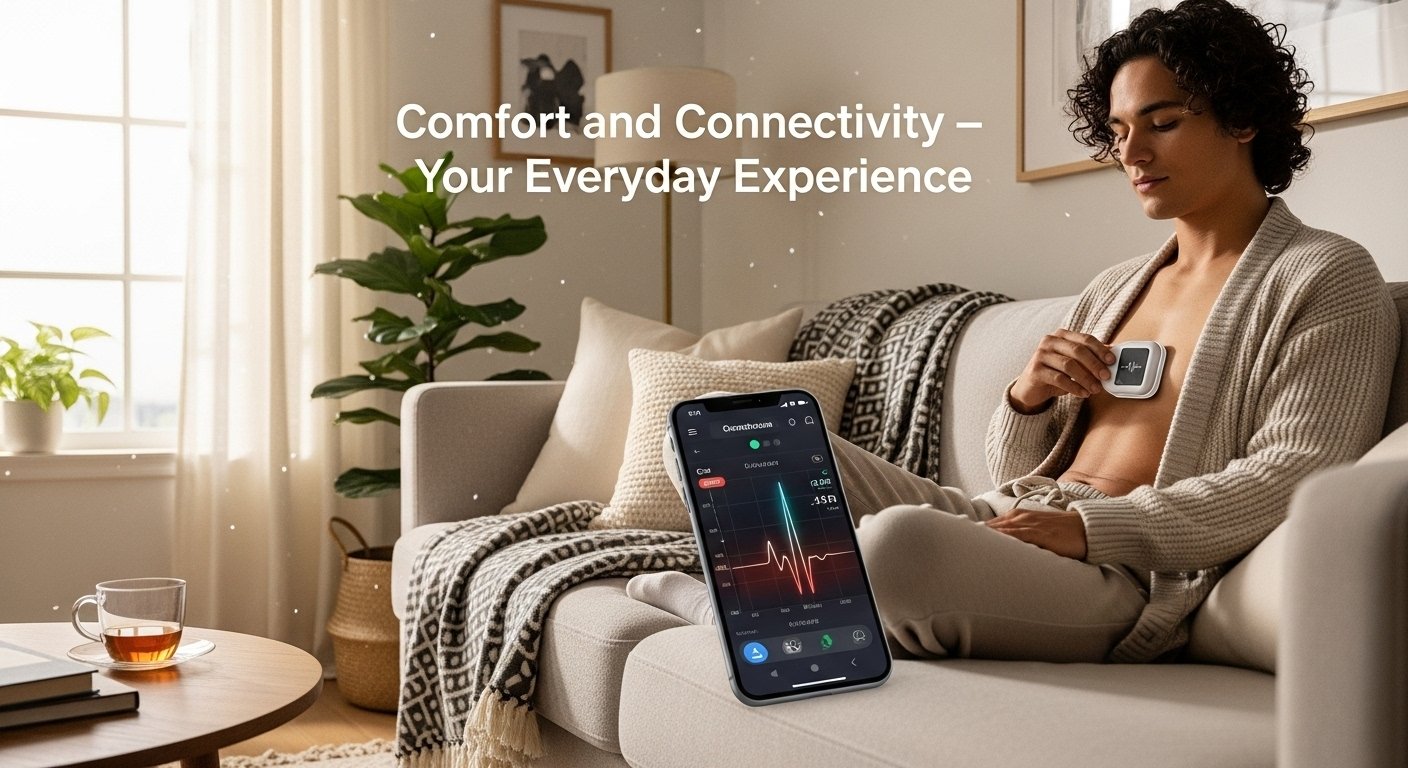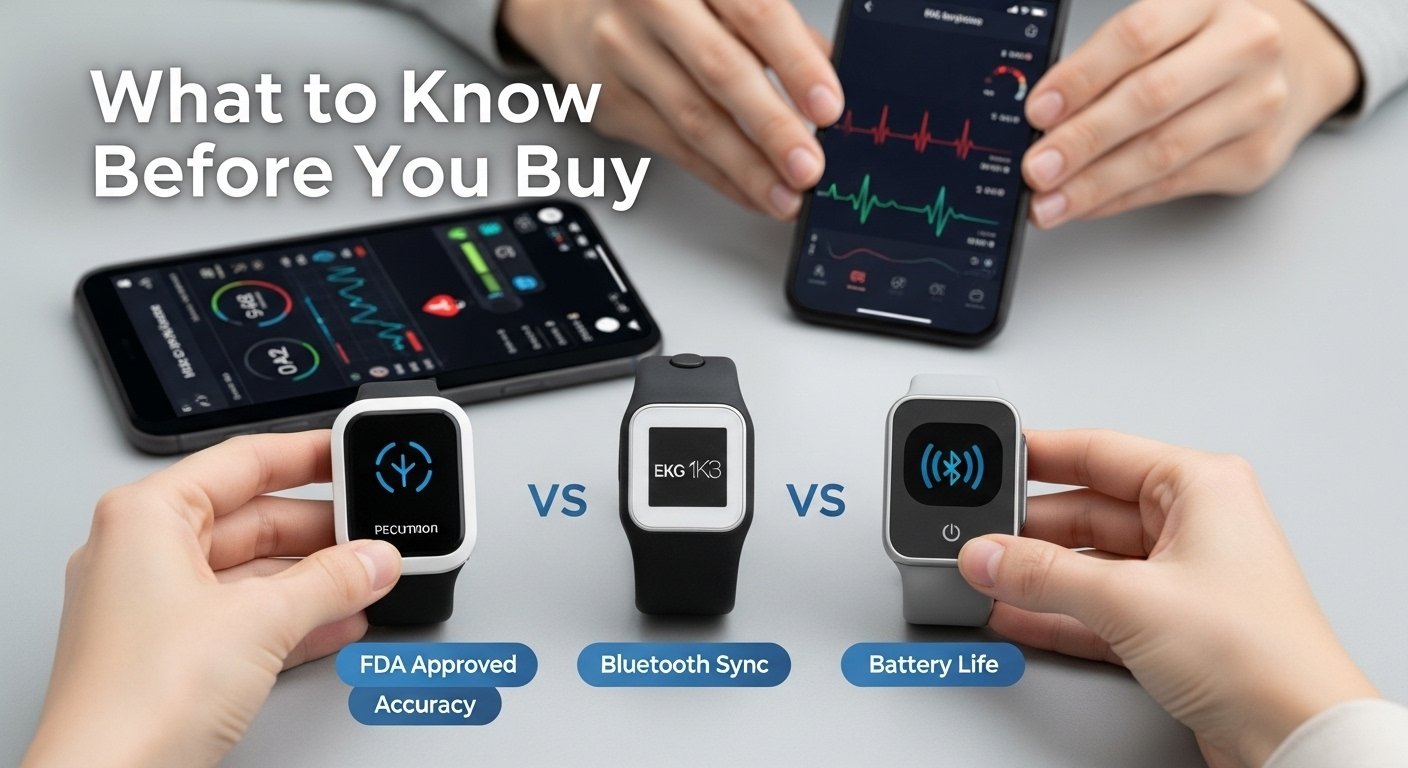Thinking of getting a heart monitor that fits right into your daily routine? Start with the facts. Before you spend your money on a personal EKG monitor, you need to know what really matters. From medical-grade accuracy to smartphone connectivity, there’s more to these compact devices than meets the eye.
Picture this: You feel a strange flutter in your chest. Instead of panicking, you open an app, tap a button, and within moments, you’re reading your own heart rhythm—clearly, confidently, and without leaving home. That’s the real power of a personal heart monitoring device. It lets you act fast, track trends, and share crucial data with your doctor in seconds.
In this guide, you’ll learn the must-know features, common pitfalls to avoid, and smart questions to ask before you commit to one.
Let’s get started—your heart deserves nothing less.
Understanding the Basics: What Is a Personal EKG Monitor?
Here’s the deal: a personal EKG monitor is a compact, user-friendly device designed to record your heart’s electrical activity in real time.
- It detects irregular rhythms: whether it’s an occasional flutter or something more serious like atrial fibrillation, these monitors help you catch abnormalities early.
- Helps monitor heart conditions: Perfect for tracking known issues or serving as a preventative tool if you’re at risk.
- Sends results to your smartphone or doctor in seconds. With most devices syncing to mobile apps, you can instantly review or share your readings for expert input.
These monitors are ideal for people who experience occasional symptoms or want to track their heart health regularly. The best part? You can use one from the comfort of your home without needing to visit a clinic.
Next, let’s clear up a common confusion: what’s the difference between EKG and ECG?

EKG vs. ECG: Are They the Same?
Wait a second—aren’t they just different letters? Yes! ECG vs EKG is a matter of terminology. Both refer to the same test: electrocardiography. “EKG” comes from the German spelling “Elektrokardiogramm,” while “ECG” is the English abbreviation.
So when you see either term, know that they mean the same thing. It’s just two ways to say one life-saving test. Pretty simple, right?
Now that we’ve got that sorted, let’s move into the practical stuff: what should you look for?
Features That Truly Matter
Not all monitors are created equal. So what sets the great ones apart?
Here’s what to watch for:
- Accuracy: If a device isn’t FDA-cleared or clinically validated, don’t waste your time. You need precision when it comes to heart health.
- Ease of Use: You shouldn’t need a manual every time you use it. The best models are intuitive, with large buttons, clear screens, and simple app integration.
- Portability: The more compact the device, the more likely you are to carry and use it daily. Pocket-sized options are a big win.
- Battery Life: A device is only useful if it’s ready when you need it. Go for rechargeable models with solid battery life.
- Data Storage: Look for options that sync seamlessly with your phone or cloud services so you never lose a reading.
Choosing the right features ensures your personal EKG monitor actually works for you, not against you.
Alright, now let’s talk about comfort and connectivity—two aspects often overlooked.
Comfort and Connectivity: Your Everyday Experience
You’ll likely use your monitor often, so comfort matters. Go for ergonomic designs that don’t pinch or tug.
But here’s where it gets interesting: most modern options come with wireless heart monitor capability. That means you can view, share, and even track your heart health without a tangle of wires or hassle.
- No messy wires: Say goodbye to tangled cables. Wireless options are sleek, efficient, and less intrusive.
- Instant Bluetooth syncing: Data transfers in seconds so you can keep an eye on your heart in real-time.
- Seamless sharing with doctors or caregivers: A few taps and your cardiologist has all the data they need, no visit required.
The easier it is to use, the more likely you are to use it regularly. And that’s what heart health is all about.
Feeling clearer now? Good. Let’s take it a step further and look at how to compare the top choices.

Use an EKG Monitor Buying Guide
Here’s a secret: don’t go in blind. Use an expert-reviewed EKG monitor buying guide to save time and money.
Most reputable guides will compare:
- Device accuracy: How well does it track real-time data?
- App functionality: Is the companion app easy to use, with data interpretation?
- User reviews: Real users often reveal more than marketing ever could.
- Doctor recommendations: Professional endorsements are a good trust signal.
This shortcut can help you find the right personal EKG monitor fast and avoid costly mistakes.
Now let’s break down some questions you should ask before making a final choice.
Key Questions to Ask Before You Buy
Don’t just hit “Add to Cart.” Ask these vital questions:
- Is the device FDA-cleared or medically approved? Don’t take chances with unverified tools.
- Does it work with both Android and iOS? Compatibility issues can ruin the experience.
- How long does it take to deliver results? Speed matters, especially during an episode.
- Will it integrate with my health apps or EHR? Seamless syncing helps build a full health profile.
Asking these questions puts you in control and makes your personal EKG monitor investment worthwhile.
Still wondering if a home option is right for you? Let’s explore who can benefit most.
Who Should Use a Home EKG Device?
If you’re asking, the answer might surprise you. A home EKG device is ideal for:
- People with irregular heartbeats or arrhythmia: For tracking real-time abnormalities and sharing results with a doctor immediately.
- Those with a family history of heart conditions: Prevention and early detection can save lives.
- Athletes monitoring heart rate variability: Stay on top of training and recovery with clinical accuracy.
- Seniors wanting peace of mind: Daily monitoring without the hospital visits.
You don’t need a diagnosis to care about your heart. Prevention is powerful. And tracking now could prevent complications later.
Let’s now zoom in on one final key consideration: price and long-term value.
Cost vs. Value: What Are You Really Paying For?
The price of a personal EKG monitor can range from $60 to $300+. So what’s worth your money?
Here’s what to factor in:
- Does it require monthly subscriptions? Some devices look affordable upfront but come with hidden costs.
- Are accessories included? Additional sensors or leads can add value.
- How many leads does it offer (single, dual, or 12-lead)? More leads often mean more detailed data.
- What’s the warranty or return policy? Protection matters in case the device isn’t the right fit.
Sometimes a higher upfront cost saves you in the long run. Think of it as a health investment, not just a gadget.
Now, let’s wrap this up with a final thought you won’t want to miss.
Whether you’re aiming to track daily health or detect irregular patterns early, a personal EKG monitor can be your best health companion. With a little research and the right expectations, you can find a device that gives you insight, clarity, and control over your heart’s wellness.
Ready to take control of your heart health? Explore reliable, doctor-approved monitors that fit your life. Don’t wait for a wake-up call—your heart deserves better, starting now!


